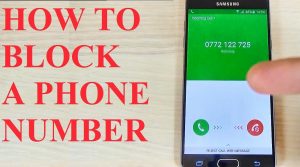As diligent as phone service carriers can be, scammers and telemarketing firms are even more so. They seem to stay ahead of the technology and the carriers just can’t keep up. You may have noticed an increase in local calls to your phone, many of which are local numbers – or even numbers of neighbors, family and friends. Sadly, there isn’t much we can do about these calls except to ignore or block them. Registering on the National Do Not Call Registry or reporting calls may help, but I’ve read numerous accounts that the reports only generate more calls. Why is this happening?
Local Numbers
Voice Over Internet Protocol (VoIP) software allows any user to create an account and choose a local phone number. The caller uses that number for whatever business or scam he is perpetrating, knowing that people are more likely to answer local numbers. The unwanted caller bets that you will answer, wondering if it’s a call from a neighbor, doctor’s office, or your child’s school. The caller may also tap into the number of a friend or family member, ensuring that you will pick up. Once you answer, the caller goes into his prepared spiel, hoping to lure you into purchasing a product or sending money for some invented reason.
How To Recognize Scammers
Most people are familiar with email scams wherein someone reports an overseas crisis, an unexpected windfall, or other event that requires the recipient to send money. Fake lotteries and business opportunities make big promises that will never deliver. Even the savviest people fall for these scams because the scammers are trained to be convincing and persistent. One of the most recent scams is being called by a utility company or the IRS, demanding immediate payment or face jail time. This is especially scary to senior citizens who may be easily confused or not up to date on the latest scamming trends.
How To Make It Stop
There is no surefire way to make the calls stop. However, you can block calls on your iPhone using a caller ID app. If a call comes from a number you do not recognize, let the call go to voicemail. Most scammers or telemarketers will not leave a message. If you receive a message that sounds legit and important, you may call the number, but beware. Any calls received from the utility company or the IRS demanding payment are most likely fraud. The IRS never calls people on the phone; they send letters. If a utility company calls, get the name and extension of the person calling as well as a call back number that you can use to verify the information. Also check the claim against any outstanding bills. If you do suspect fraud, report the call immediately to the police.
Lastly, limit the number of things you sign up for online. The more you use your phone number, the more likely you are to receive calls. You may also consider getting a masked number from Google voice or another company to separate your personal calls from potential fraudsters.

